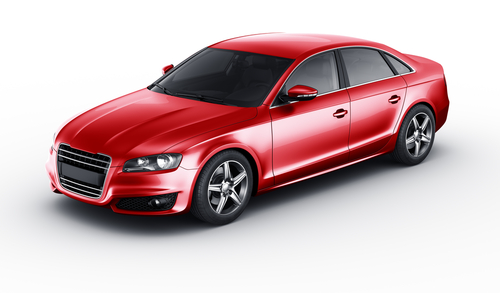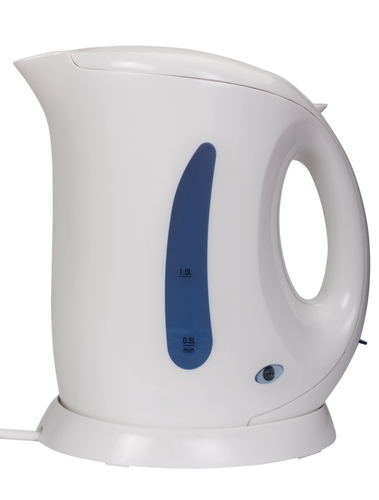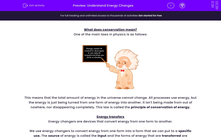What does conservation mean?
One of the main laws in physics is as follows:
.jpg)
This means that the total amount of energy in the universe cannot change. All processes use energy, but the energy is just being turned from one form of energy into another. It isn't being made from out of nowhere, nor disappearing completely. This law is called the principle of conservation of energy.
Energy transfers
Energy changers are devices that convert energy from one form to another.
We use energy changers to convert energy from one form into a form that we can put to a specific use. The source of energy is called the input and the forms of energy that are transferred are called outputs. This output energy is either useful energy (i.e. it does what the device is meant to do), or wasted (i.e. it is not a useful form of energy for that situation).
For example:

A car engine converts an input of chemical energy stored in petrol, into useful kinetic (movement) energy. Sound and heat (thermal) energy are also produced, but these are wasted outputs.
Here are some other examples of energy changers that we use every day.

A kettle transfers an input of electrical energy into an output of thermal (heat) energy.

A television transfers an input of electrical energy into an output of sound and light. The wasted energy is thermal (heat).
Energy transfers in your body
You are also an energy converter and are constantly transferring energy without realising it! You have probably heard of respiration in biology. This is the chemical reaction that takes place in all of your cells to convert glucose and oxygen into energy. (It is not just another word for 'breathing'!)
You convert the chemical energy stored in your food into kinetic energy (to make you move), thermal energy (to keep you warm) and electrical energy (all the signals sent around your body to and from the brain are electrical signals).
Let's move on to some questions now.








